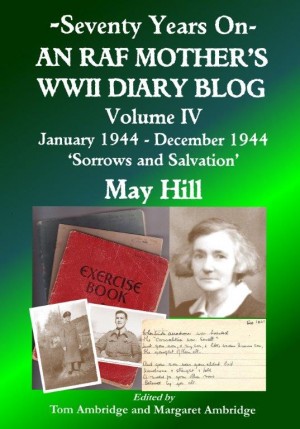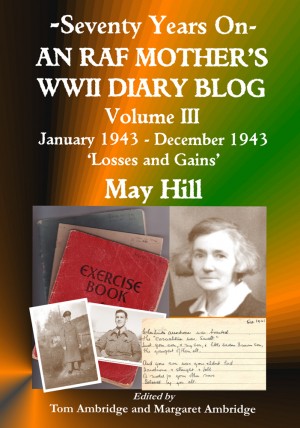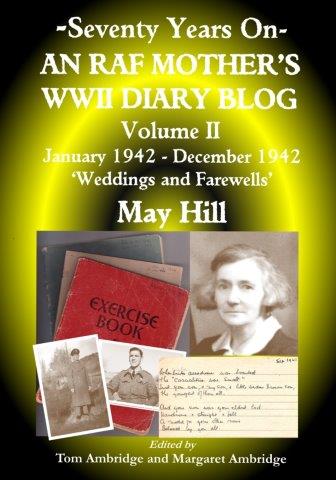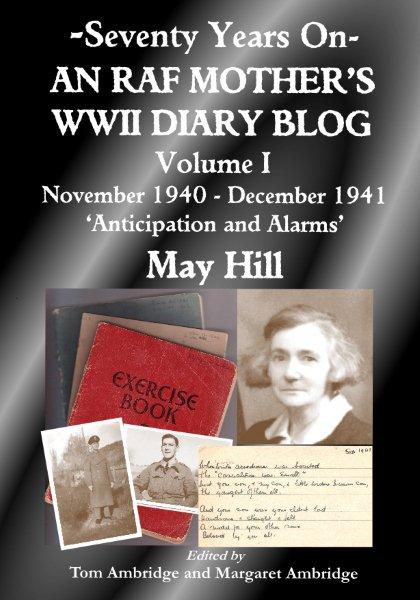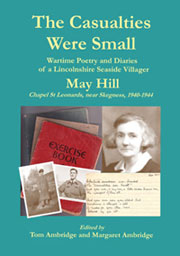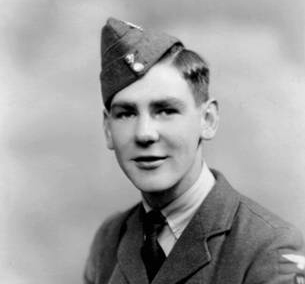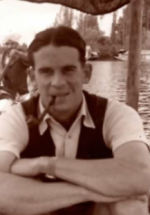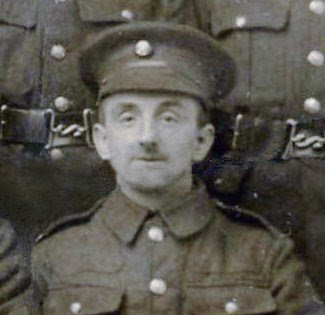Haven’t heard of Hitler’s arrival so far. Jean said they had two warnings at Sk. yesterday and went in shelters. The new baby (Cootes) died on Wed and was buried Thursday. Poor little mite of two days. I must try to see Mrs C. on Sun can’t get before, because we are killing pig to-day. It is rather a disappointment as it has not done well lately, but will be better than nothing. The young one is doing well so far but I expect the feeding stuffs are not good enough.
Father has gone to G[rims]by. Mr Lucas and Rob. going with him and Mr Hallg[arth] to Louth probably. F Green called to Rene to say he wanted to go but did not get off his bike to say when, so if it was to-day he would be disappointed. They have sold the house and land and are living in one of Cannings houses.
Steve Lucas of ‘The Dell’, Sea Bank Road, and youngest son Robin, were probably meant here. Steve’s brother, Hedley Lucas, also lived in the vicinity.
Bill Hallgarth, coastguard, was probably meant here. A freelance builder, he lived in ‘Frenchfield’ near the corner of St Leonards Drive and South Crescent.
Fred Green previously had a small-holding ‘Rosegarth’ on South Road, towards Trunch Lane.
John Henry Canning built several houses from the late 1920s. This probably refers to those in Sea Road between Tylers Bridge and the village, although there were also bungalows at the village end of Sea Bank Road. His son, Malcolm, was in the local group of the Royal Observer Corps.
Maps of the village and surrounding area are now available to view or print for future reference.
We sent Ron his blue cuffs yesterday and a cigar from Mr A. Also his other pyjamas tho’ he had not asked for them, but as he was washing some out thought he needed them. We put in a few cakes but forgot Jean’s sweets. Must put them in next week with some “pig cheer”. It was icily cold yesterday but kept fair except for a few spots rain at teatime. It is dull but fair this morning. Think we must get some more cold rain or snow. Hope it isn’t snow. Rene is calling for small thalms as she comes home so shall get them done by daylight if all’s well. Hope to cut the kell up to-night. As they are not cutting out until 10am to-morrow morning it is going to make us late and Sat at that. Rene can’t come but Eff will. Mrs B. is having chittlings as they call them. Jean is greatly thrilled, we have not had a pig since she was very small.
‘Pig cheer’, alternatively known as ‘Pig’s fry or fries’, consisted of freely-given products of a home-killed pig. A selection of meat, which could include brains, heart, offal (such as sweetbreads, kidneys and liver) and small pieces of pork, was presented on a plate covered by part of the ‘apron’ or ‘caul’ (the frilly fatty lining of the pig’s stomach, like a net with threads running through, which held internal organs in place). Traditionally, the plate was returned unwashed, to avoid bad luck. (For an account of keeping and processing a pig in Lincolnshire see chapter 5 of ‘Nobbut a Yellerbelly!’, Alan Stennett, Countryside Books, 2006.)
‘Tharms’ (spelling corrected) were the small intestines of a pig. These were washed and cleaned out to make natural sausage skin. (See ‘A Glossary or Collection of Words, Phrases, Place Names, Superstitions Current in East Lincolnshire’, Jabez Good, Long Sutton, c1900.)
May and Rene were embarking on ‘Getting the pig out of the way’ which was the expression for the kitchen activity of sorting and preparing all the different parts for products such as lard, sausages, brawn and pies.
The ‘kell’ was a large mass of fat, from the back of the pig’s stomach, used to make lard by rendering (melting), leaving edible ‘scraps’ or ‘scratchings’ (small dry pieces with or without a little fat attached).
‘Chittlings’ or ‘Chitterlings’ were very small intestines of the pig – cleaned then cooked as they were and eaten.
Mrs B, here, was probably Rose Brown, an elderly friend, who lived with her husband, Eardley Brown, at ‘Ash Cottage’ on Sea Road, near Tylers Bridge.
Have you read an introduction to May Hill & family (includes photographs) and explored ‘The Casualties Were Small’?

